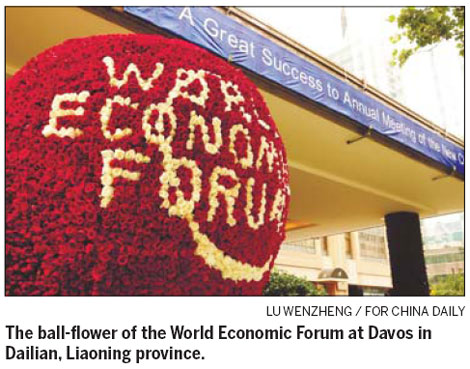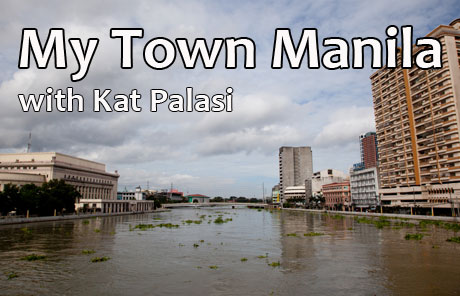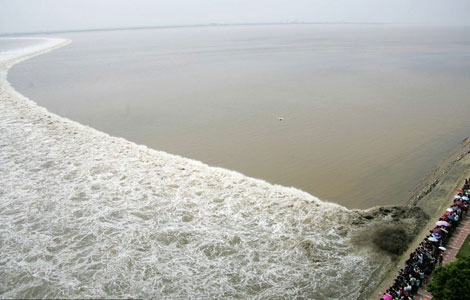Quality is a main aspect of growth
Updated: 2011-09-15 07:48
By Dawood Azami (China Daily)
|
|||||||||

Quality growth is aimed at attaining the highest quality of life and greatest economic prosperity for present and future generations through a responsible balance between the protection of the environment, land, water, air, and development.
We are facing a number of major problems including energy, the environment, and food and financial security.
In the meantime, sustainability and interconnectivity are emerging as the new realities of the modern world. The challenge is how to find solutions to current crises that are economically sound, socially just and ecologically sustainable.
The answer lies in quality growth. In contrast to the quantitative growth that is heavily dependent on resources and detrimental to the environment, qualitative growth is resource conserving and environmentally friendly. It is development based on principles that are economically sound and environmentally sensitive in order to protect, preserve and enhance environmental resources.
Quality growth also means cutting down on pollution and waste, encouraging recycling of used materials and sharing more fairly between different social groups.
Sharing is an effective way to cure many of today's problems including poverty and environmental degradation.
Sharing the achievements of development is important for rebalancing the global economy and achieving global quality growth.
Sharing best practices and lessons learned among various countries and companies, and an open method of coordination, will undoubtedly result in a more sustainable development.
Although sharing has become anathema in certain communities, especially in the North, it is still a fundamental value, even a social imperative, in many cultures in the South.
By invoking the spirit of sharing, we can also correct the unbalanced development between different regions, and between urban and rural areas.
Sharing and trade in useful services, including recipes for greener technologies and proven formulas for delivering healthcare, education and social services, will enhance the quality of life in many parts of the world.
Promoting technology transfer and international ecosystem protection will play a vital role in the environmental orientation of the global economy.
It is assumed that many technological innovations will come about in industrialized countries, therefore establishing networks and platforms for information sharing and taking measures to promote technology transfer are highly significant.
Meanwhile, establishing a global technology fund to invest in renewable energy and energy efficiency will be an important step toward carbon reduction and the protection of forests and biodiversity.
In order to discourage excessive consumption, a better balance needs to be struck between private and public forms of consumption, including expanding organized sharing of facilities and amenities, from public libraries to cars and tools.
A reinvigorated public infrastructure that allows for greater social provision of certain goods and services will result in a shift of perception from product oriented to service oriented.
For example, providing mobility can also be achieved by producing more quality buses and trains and by redesigning our cities rather than producing and selling more cars.
Sharing of expertise and experience, exchange of information, and mutual learning will prove effective over time in developing solutions to typical problems.
These exchanges should evolve to cuisine, art, music, dance and literature, which will help in creating a better understanding and higher levels of planetary awareness.
Quality growth and sustainable development are not only economic processes. They are about freeing people from endless materialistic consumerism and providing them with creative opportunities to flourish.
Quality growth is a multidimensional systemic process which also includes ecological, social and spiritual dimensions. Therefore, we must keep reminding people that real satisfaction can be found in human relationships and community building and not in material consumption.
The earth itself is a complex network of inseparable patterns of relationships; the planet is a living, self-regulating system and the universe is web of cooperation and collaboration.
Our world is becoming more interdependent and our major problems are interconnected. They cannot be understood and tackled in isolation anymore.
Multilateral and systemic solutions are needed to solve these problems for the benefit of all. Fostering effective collaboration and coordination among local, regional and global organizations is a must to work toward common goals that extend beyond national and regional boundaries.
The author is bureau chief of BBC World Service in Afghanistan and a member of the World Economic Forum's Young Global Leaders Community










